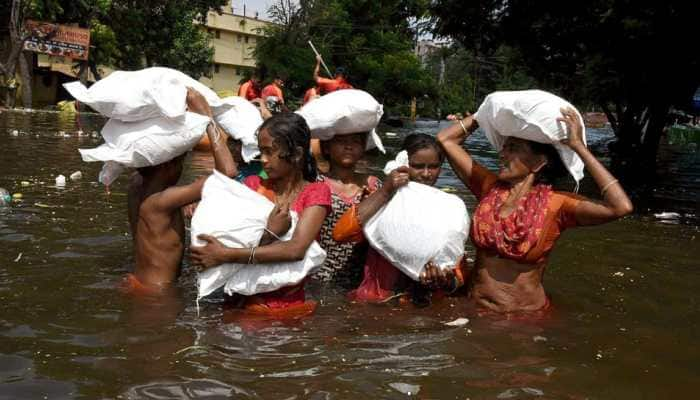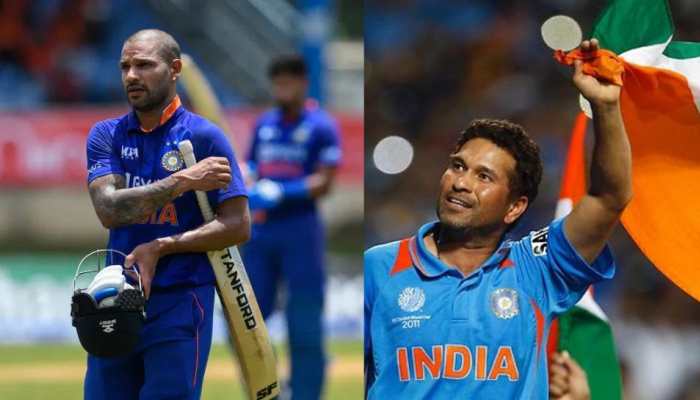Doklam Impasse: India should not engage China in ''tit for tat'' response, says Shyam Saran
Saran was categorical in stating that New Delhi should not respond to China the way Beijing was doing.
Trending Photos
)
New Delhi: Former foreign secretary Shyam Saran on Thursday said there was no need for India to look for what he called a "tit-for-tat" kind of exchange with China over the current impasse in a tri-junction border area in the Doklam Plateau that involves Bhutan as well.
He was categorical in stating that New Delhi should not respond to China the way Beijing was doing.
"I don`t think we should look for tit-for-tat kind of exchanges. This is serious business. Would welcome the fact that the Indian side has rather been restrained and mature in its reaction. Let the Chinese side raise the decibel level, and there is no need for us to respond in the same way," said Saran at an event titled `China-centric world order inevitable?`
The former foreign secretary said the key lies in building capabilities that India has won over the past years.Referring to the current border structure, Saran said, "I would not say that we have not made improvements. We are certainly much better off than 10 years ago in terms of setting the infrastructure on our side, but the fact is, that the other side has been developing more rapidly."
Admitting that sometimes it is difficult for a country to make choices in such situations, Saran said, "I think there is a real dilemma. The anger which I see to my mind is linked to the script not having being followed. There are number of possibilities, and of course, those who are dealing with this, are in the best place to decide what is the risk that you are prepared to take. We have to also take into account the interest of Bhutan. So, it is a much complex situation than normally one would face."
Saran`s significant assessment came even as Indian and Chinese troops continue to be locked in a standoff in Doklam,Both sides have moved additional troops, ammunition and military equipment to the area.
The People`s Liberation Army (PLA) of China has beefed up its defence in a region south of the Kunlun Mountains under the pretext of conducting a military exercise near Tibet.Hardware has been moved simultaneously by road and rail by China`s western theatre command, which oversees the restive regions of Xinjiang and Tibet,and handles, among others, border issues with India, media reports have said.
This show of strength is being projected by Beijing as a warning to India by China to back off from its objection to China constructing a road at the Doklam tri-junction.
On Thursday, the Ministry of External Affairs (MEA) reiterated that differences between India and China should not and would not be allowed to become disputes, and added that communication between the two governments have never ceased, nor have been broken.
"The differences between India and China should not be allowed to become dispute. Every powerful player, power in the world prefers peaceful resolution of matters that are in hand. The diplomatic channels and diplomatic communications have never been ceased, they have never broken," MEA spokesperson Gopal Baglay told media.
External Affairs Minister Sushma Swaraj informed parliament that all countries, including Bhutan, are with India with regard to the Dokhlam Plateau stand-off."India wants that troops are removed from the tri-junction point to discuss the issue together. All countries, including Bhutan, are with us," Sushma told members of the Rajya Sabha.
"Over the years, China has been trying to get closer and closer to where the tri-junction point ends. It has done things like repair roads, re-tar them and things like that,"Swaraj added.
"If China unilaterally changes status-quo of tri-junction point between China-India and Bhutan, then it poses a challenge to our security. We have the law and right on our side," she said about India`s position.
The issue of China`s presence in the South China Sea was also countered by Swaraj, who said, "There is no threat to India from Beijing in terms of sea presence."On the `One Belt One Road` issue, Swaraj said India is opposed to the China-Pakistan Economic Corridor`s (CPEC) inclusion in the OBOR since the time it was proposed, as it was passing through territory that India claims as its own.Bhutan recognises Doklam as its area, while China claims it as part of its Donglang region. Doka La is the Indian name for the region.
Stay informed on all the latest news, real-time breaking news updates, and follow all the important headlines in india news and world News on Zee News.
Live Tv







)
)
)
)
)
)
)
)
)
)
